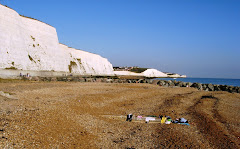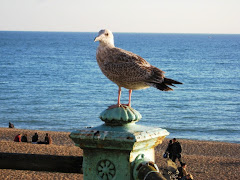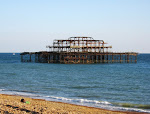Now, don't think me obsessive: when we are on holiday, we don't just sit in watching this stuff. We do try to get out and about - honestly. But there's something temptingly fascinating about watching TV in another country and another language, and Spain is one of the most informative...
Spanish TV – all 14 or so free channels – is good introduction to the Spanish psyche. For a start, programmes often start and finish late, and get rescheduled at short notice. The TV schedules are renowned for saying ' Sin determinar' (not known) when referring to the films planned for the week ahead. Do they really not know what is going to be on?
Then there are lots and lots of adverts; between programmes, these can last for anything up to ten minutes. These are for all sorts of products that would fall foul of the Advertising Standards controls in the UK, especially for wonder slimming products which claim to lose you five inches of waistline just by painting on some green goo. In any programme with an exciting ending – a film or quiz show, for example – just before the end there is often a long advert break of at least five minutes.
One of the most interesting contrasts with the UK is the Spanish equivalent of ‘Deal or No Deal’ , called ‘Alla Tu’, on Tele 5. It’s much more fun that the
But best of all are the South American soaps. These can show schoolgirls (looking about 25 and heavily made up) in unfeasibly sexy uniforms (tall leather boots, crotch-high skirts and copious cleavage, anyone?) - which seem to be timed mysteriously accurately for when Spanish men are returning home from work. But most show feuding families, á la Dynasty, with evil, greedy and jealous women a speciality.
The general format of all of these consists of unfeasibly complex plots, with five or six parallel story-lines (which develop tediously slowly), featuring unhappy but vengeful rich people with their (largely) contented peasants in the background. I read somewhere that this had been devised as a form of social control - to encourage the general population to aspire to the lifestyles they see, without actually fostering resentment against the rich for their wealth.
The downside of watching this stuff as a foreigner is that you learn a rather skewed vocabulary: words like murder, poison, revenge and hate, and a whole lot of unpleasant ways of bumping people off. The highlight at the end of one series, La Tormenta, was one of the women being bitten by a spider just as she was about to reach the zenith of her drawn-out evil scheme: it paralysed her, and the camera focused on her terrified face as a boa constrictor slithered into view...
Perhaps 'East Enders' could take a note or two...?



No comments:
Post a Comment